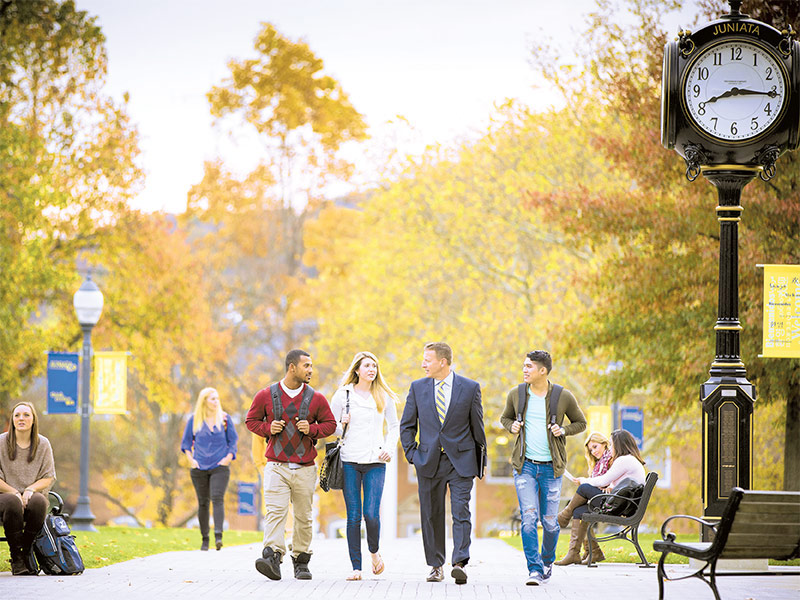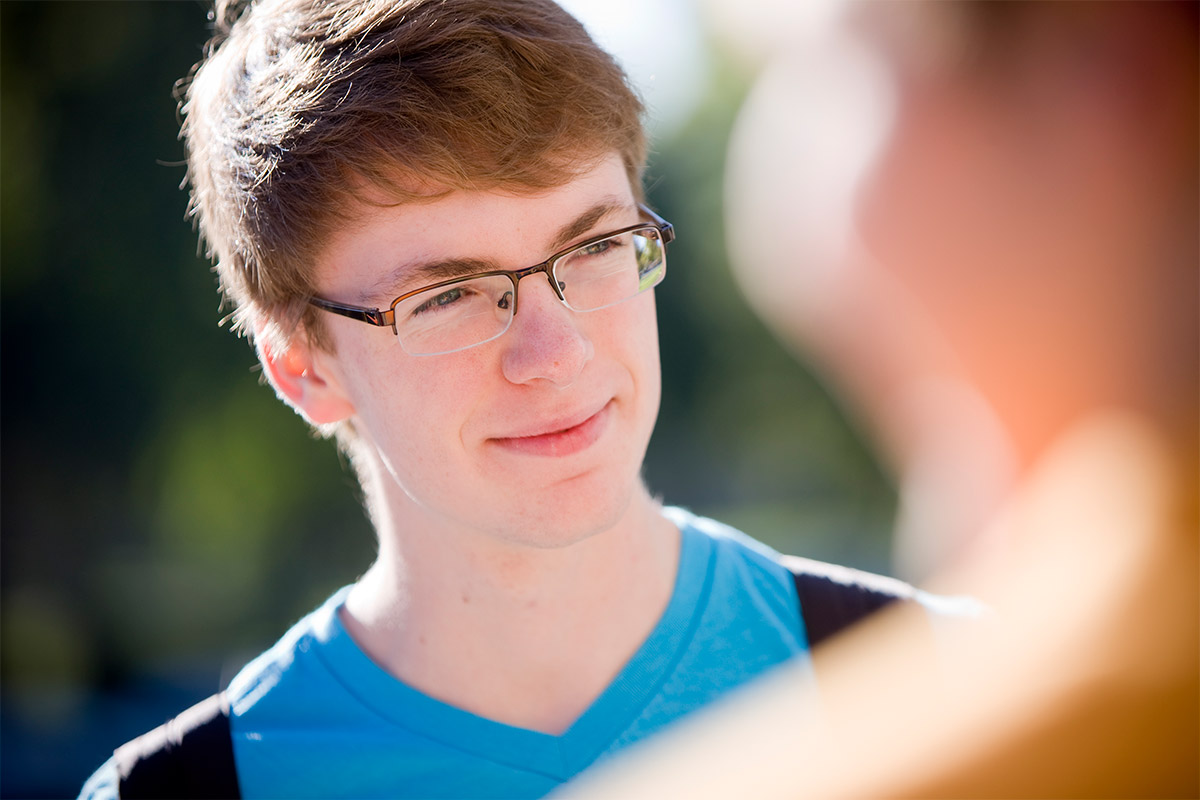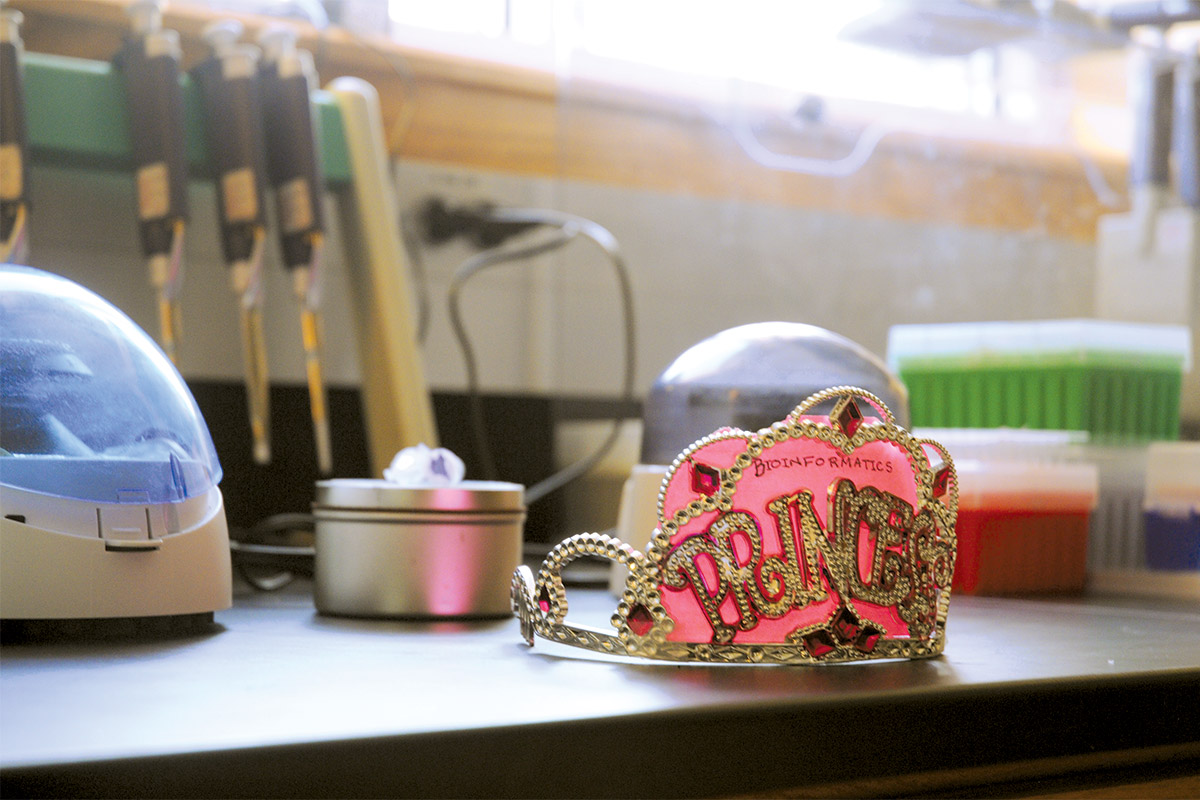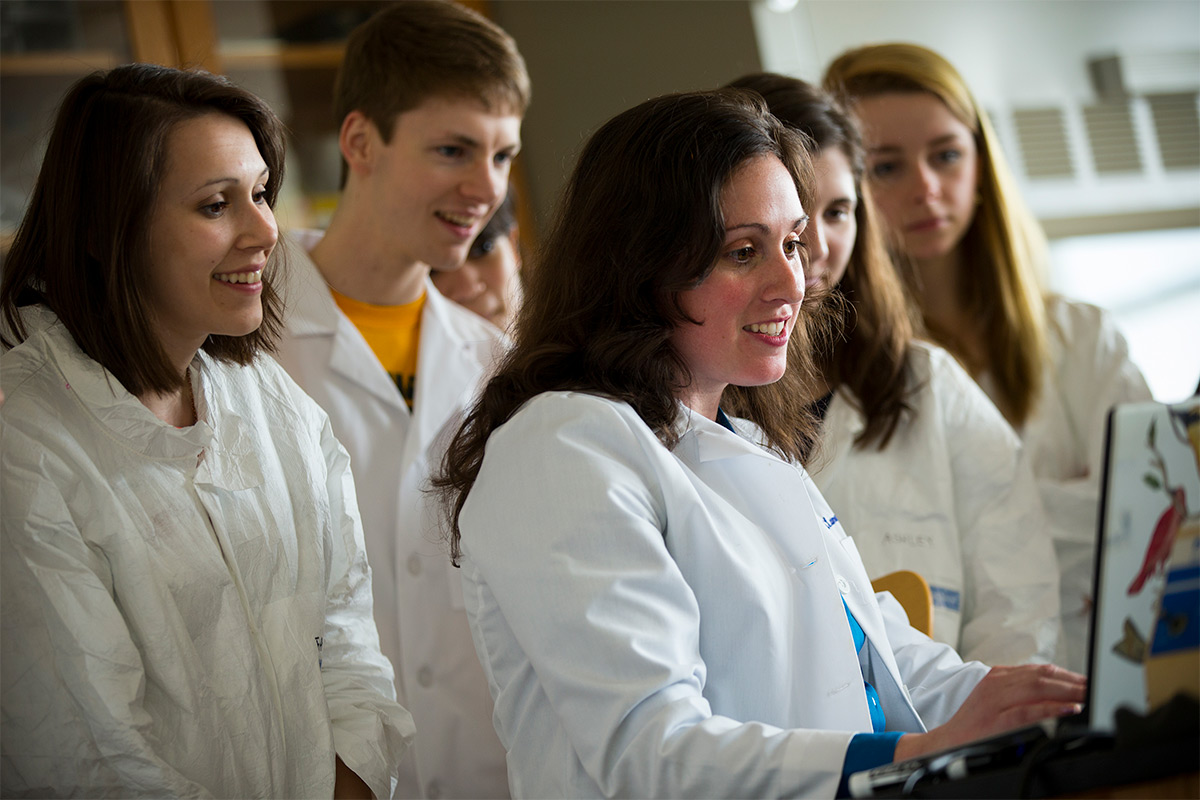
Investing in a Life of Meaning and Happiness

Apply online and begin your next chapter.
Tour campus, meet with admission staff and get to know Juniata.
Identify your passions, explore endless opportunities, and design your own education.
Explore Juniata’s campus with our virtual tour.
Meet your admission counselor in your area.
“I was in a jazz band. Did biology research. Helped run the Juniata website for three years. Then, right out of college, I landed this job.”
A Tumwater, Washington, native, Colin’s quest for a small liberal arts college with a strong, hands-on, science program led him across the country to Pennsylvania—where he toured the one campus that checked every box: Juniata.
From substantial exposure to lab research to a musical community where he found his groove, Colin arrived at his collegiate home.

Colin graduated in 2014 with a degree and professional connections that led him to a dream gig back in his home state, as a computational biologist at the Pacific Northwest National Laboratory. There, he works with researchers from around the world. His relationship with Juniata scientists and his intensive lab hours on campus opened the door.
Related Content
“I got this job right out of college, at a national lab that does research in a range of fields—analytics, defense, climate modeling, waste cleanup,” says Colin, who works within the lab’s Earth and Biological Sciences Directorate, a microbiology lab where he studies the way microbes influence environmental and human health.
“My research with a scientist in the Juniata lab was a key connection. And, Professor Lamendella, who came to Juniata from a prestigious ecology lab, did her post-doctoral work with my current supervisor. Every day, I use skills gained during the hands-on research of my junior and senior years,” Colin says.
He’ll soon have a scientific paper published that came from the work he did during his research at Juniata.

Professor Regina Lamendella introduced the bioinformatics tiara when she was first setting up her lab at Juniata, to celebrate a rising senior at the time, Erin McClure, who helped establish the lab. Professor Lamendella gave her the tiara to wear in moments of struggle with difficult science software. “When Erin graduated and began her Fulbright Fellowship at the University of Vienna, the tiara was passed on to the next class of research students,” Colin says. “Sometimes, late at night, members of our lab could be found doing computational biology wearing the ceremonial headgear for good luck.”
Colin found Juniata offered him freedom and opportunities to feed his many interests, including his love of IT. For three years he partnered with professional staff, working on Juniata’s website as a Juniata Associate. And, he hand-picked his computer courses.
“I had the option of picking up computer science as a ‘minor’ but I chose not to,” Colin says. “I just took the computer science courses as extra, on the side. I was able to add just the ones I needed to be successful. Juniata let me take all these different courses from different fields that have been so important to my job now,” Colin says.
The freedom and versatility extended beyond course electives, too. Colin was able to pursue other passions—from playing in a campus jazz band to working in web development—thanks to the abundant opportunities beyond the classroom for students to explore their interests.
Looking back to his days and nights at Juniata, one of Colin’s favorite hangouts was the von Liebig Center for Science. Teeming with activity even into the evening, here student researchers convened to concentrate on their projects.

“People would be there in the evenings after class,” Colin says. “Since I’m a computational biologist, I’d be working on a supercomputer, not specimens, but there were people working there extracting samples—dissecting fish to look at the mercury concentrations in their bodies—all in two connected labs. I loved being plugged in to the different members of the lab.”
Making connections at college helped Colin get his start.
And he’s making strong connections in his job now. Which is good news for future Juniata grads: as Colin grows in his field, he adds to the worldwide networks of 15,000 Juniata alumni who serve as professional contacts for future grads.
And he’ll be as happy to help as are those who’ve helped him.
Juniata College
1700 Moore Street
Huntington, PA 16652
Juniata College
1700 Moore Street
Huntington, PA 16652